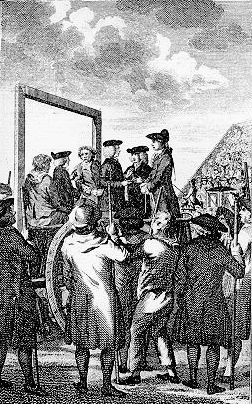
The Beauties of Shakespear, Regularly Selected from Each Play, with a General Index Digesting them under Proper Heads, Illustrated with Explanatory Notes and Similar Passages from Ancient and Modern Authors was a bestseller: my text was from 1752 (first edition), but reprintings of this anthology, each larger than the last, abounded. As well as being popular, William Dodd’s anthology is also a book that seems to do all it can to avoid contact with the stage, and I thought I’d take a moment to evaluate some of the work’s techniques in this respect.
The preface to the anthology contains the wish that critics had “sociably united; and instead of putting themselves in a posture of defence one against another, jointly taken the field, and united all their efforts to rescue so inimitable an author from the Gothic outrage of dull players, duller printers, and still duller editors.” The antipathy is clear, and continues in a more muted fashion with appeals to the “attentive reader” of Shakespeare, and a marked preference for the exploration of Shakespeare’s learning (the knowledge of the Athenian legal system displayed in A Midsummer Night’s Dream, for example) and the discovery of classical parallels (such as the bees speech from Henry V and Virgil’s Georgics).
On top of this, Dodd presents his quotations shorn of all context. To the point that he has to reconstitute stage directions in a footnote in order to make sense of Rumour’s speech at the start of Henry IV part 2. It is hard to imagine any kind of stage when a speech is announced with such a title as “Tears compared to dew upon a lily” (any guesses?).
Nevertheless, if one looks closely enough, Dodd is not wholly antipathetic to the stage. Some of the beauties he selects are famous set pieces for actors (such as Adam’s scenes in As You Like It), while there are more than a few footnotes devoted to the praise of Garrick as Benedick or as King Lear. In addition to this, whereas Dodd occasionally bemoans the interpolations of actors, he ends up quoting Romeo’s solioquy upon his death in order to show how superior to the adapted stage versions are to it.
[On Romeo’s dying speech] I have given the reader this last speech of Romeo, rather to let him into the plot, and convince him of the merit of the lacerations made in it, than for any singular beauty of its own; Romeo’s surviving till Juliet awakens, is certainly productive of great beauties, particularly in the acting. And, indeed, this play of our author’s hath met with better success than any other which has been attempted to be altered: whoever reader Otway’s Caius Marius will soon be convinced of this; and it is to be wish’d none would presume to build upon Shakespeare’s foundation, but such as are equal masters with Otway.
This can be read two ways: either that Dodd believes there are some beauties of Shakespeare to be found on the stage, or that, since these adaptations are not from the pen of Shakespeare, they deserve no place in this anthology. After all, the actor and the theatre, in the little they appear, always remain in the footnotes: pride of place is given to the beauties, which do not announce themselves as stage beauties.